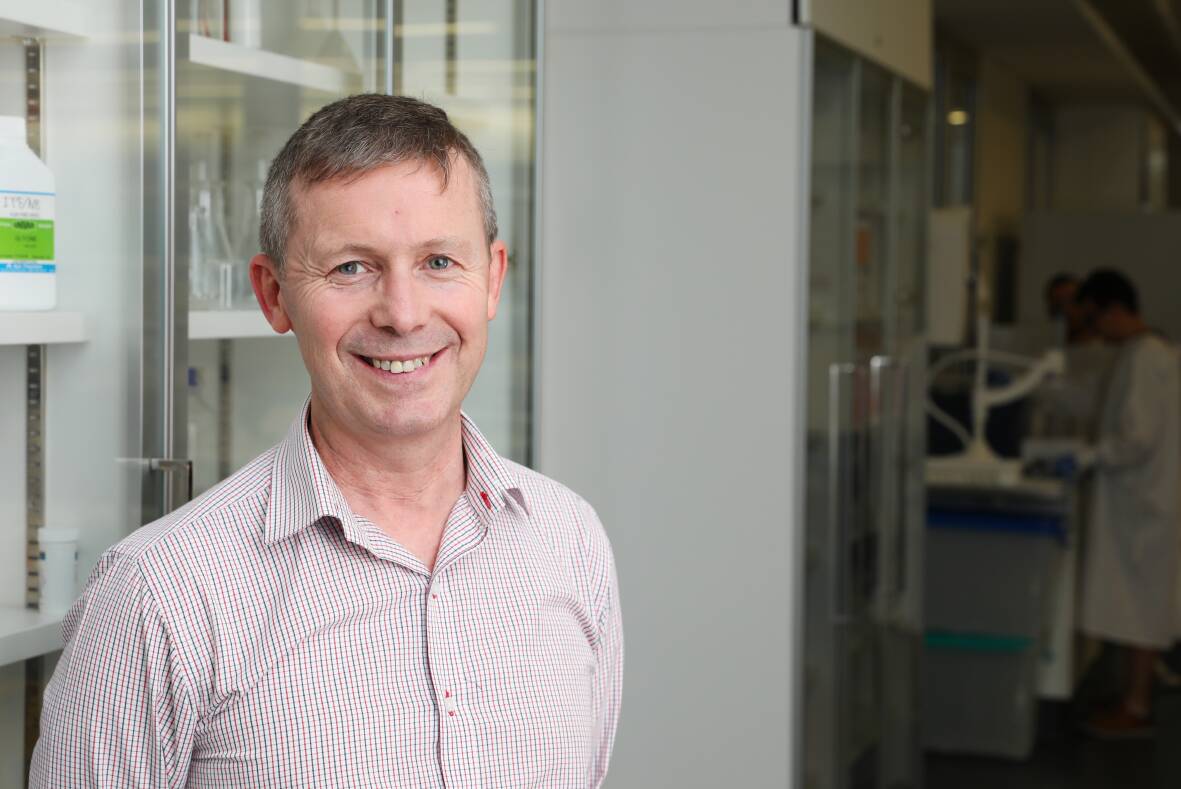COVID-19 has become as infectious as measles and John Hunter Hospital's intensive care unit is under serious strain, a Hunter Medical Research Institute seminar has heard.
Professor Peter Wark, a senior staff specialist in respiratory medicine at John Hunter Hospital, told the public online seminar that "our hospitals are really under a lot of strain".
"In Australia, we have the most number of patients in hospital at the moment as we've ever had with COVID-19," he said.
Professor Wark said John Hunter Hospital is "completely full".
"We do not have room in our intensive care. We can't move people out of our intensive care. I've even sent people home from intensive care because they've waited so long and I couldn't get a ward bed for them.
"I have had patients in the last week that have been in the emergency department for three days before they could get a ward bed.
"We're sending some public patients to private hospitals under a scheme we have with the private hospitals. That's a small number of people. This is a very serious problem that we have. It's not just COVID-19 either."
The hospital is also treating patients with "other respiratory infections".
"Fortunately we've seen the flu cases starting to come down now quite quickly in the last couple of weeks."

He said the situation was "not going to improve until well into spring".
"It's going to have roll-on effects with staff getting infected, staff furloughing, our inability to do elective procedures will continue, our inability to get access to other services will also be impacted. It means we won't be able to provide outpatient services to the same level."
The seminar, titled "The Future of COVID" and held on Tuesday, also discussed vaccines and the virus.
Associate Professor Nathan Bartlett, head of viral immunology and respiratory disease research at HMRI and the University of Newcastle, said the virus was "not able to mutate any more than any other RNA virus".
"This is all being driven by the level of infection. It's really important to understand that this virus has very quickly adapted itself to its human host. It's only been in the human population for 2.5 years," Dr Bartlett said.
He said the virus had "very rapidly evolved to become as infectious as the most infectious human virus we know, which is measles".
"So the scary thing is we now have a measles-level infectious virus, but it's a respiratory virus. Why is that important? Well that makes what a vaccine has to do so much harder.
"The peak of viral load for measles, for example, is about two weeks. So there's quite a bit of time for a vaccine to initiate an immune response and intercept that virus to protect you."
Omicron is replicating much more quickly.
"To get a vaccine to respond to that and intercept that and prevent that from happening in that short amount of time is really difficult," Dr Bartlett said.
"It's going to be very difficult for us to get ahead of that. These new vaccines are going to have to be something very different and special."
They would perhaps need to be supported by other treatments such as intranasal sprays that "guard your upper respiratory tract".
Professor Wark said the efficacy of the vaccines had waned "as the virus has started to change and become less like that original ancestral strain".
The pair strongly recommend that eligible people have their fourth vaccination to reduce the severity of COVID.
Professor Wark said it was a "safe bet" that more mutations of the virus would occur.
"While we have lots of virus circulating in lots of populations and we still have the majority of the world being unvaccinated and, only at the mercy of natural infection, this virus will continue to circulate and mutate.
"This is a global problem."







